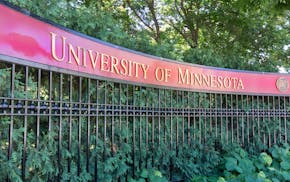A tax by any other name may still be a tax. And so called "sin taxes" are generally thought to be a bad idea. But nowhere is it more justified as a fee than with alcohol, since 75% of treatment admissions are paid for with public dollars.
Let's see, a while back, Steve Simon and Chelsea Becker publish a commentary promoting a tax/fee on alcohol as a way to pay for such things as DWI enforcement, substance abuse treatment, and other social ills caused, or exacerbated, by alcohol use. Shortly thereafter, Rob Hahn, the owner of the Midwest Wine Connection and then Dan O'Gara and Pat Mancini bar/restaurant owners, wrote counterpoints; Hahn with a counter proposal to tax fast food, and O'Gara/Mancini with a plea not to add another tax to the supposedly overtaxed alcohol industry. Both, tongue in cheek I hope, extol the health benefits of alcohol.
First let's be clear, we already tax items that are shown to negatively impact society at a rate where the tax is designed to offset the costs associated with misuse of the item; think cigarettes, and now tanning beds. And alcohol negatively impacts society more than either of them, and in fact, more than all illegal drugs combined. The impact on health care from things like alcohol related accidents, diabetes, cirrhosis, kidney disease, malnourishment and dementia are all well documented. The impact on broken families, unemployment, poverty and homelessness is clear. And alcohol is also one of, if not the biggest contributors to crime; not just DWI, but domestic/family abuse, stranger on stranger violence, sexual abuse and any other crime where a lowering of inhibitions is a factor. Yet we have those who argue against a fee to offset those costs. We all know the rationale for taxing cigarettes. Their use is shown to increase the risk for cancer. Most people don't smoke, so we have no problem placing the costs to society on those who do. Most of us don't use tanning beds. We have no problem taxing those who do because sunlight, in large doses, causes melanoma. And to the argument brought forth by both earlier commentary pieces, like the occasional glass of wine, Vitamin D, one source of which is sunlight, is also a health benefit in small doses. But many of us use alcohol, including many politicians who pass laws. And many beverage alcohol manufacturers, like the tobacco companies of the '50's, make large campaign contributions. So passing such a tax on alcohol will be a task worthy of Sisyphus. But on to the arguments presented by the other authors. Fact, unlike the scenario portrayed in the O'Gara/Mancini piece, an alcohol tax would land most heavily on those who abuse alcohol. A recent SAMHSA study confirms that 23% of the U.S. population has engaged in binge drinking in the past 30 days. Wikipedia defines binge drinking as the consumption of alcohol with the primary intention of becoming intoxicated. It's defined elsewhere as consuming at least 5 drinks in a row. It's not your occasional glass of wine. Others have estimated that 80% of the overall alcohol consumed in this country is consumed by 20% of those who drink. Assuming those 20% are more likely to develop problems like alcoholism and engage in things like driving while intoxicated, domestic abuse or other behaviors brought about by a lowering of social control; the O'Gara/Mancini argument that a tax/fee would, "punish responsible consumers", doesn't seem to hold much water. In fact, a tax/fee could almost be portrayed as prepayment for treatment and enforcement. The impact would not fall disproportionately on those who read a magazine for wine connoisseurs, or those who have one or two drinks with dinner. O'Gara and Mancini argue that alcohol is unfairly taxed and cost of a new tax will increase unemployment statewide and put bars out of business. Too bad users of other products have not had to endure the same market conditions as those of beverage alcohol. I do not wish to seem facetious, but we really need to examine the increase in the comparative cost of alcohol. In 1970, a loaf of bread cost an average of 25 cents, today the same loaf of bread goes for $2.00. In 1970, a gallon of gasoline was 32 cents; today that gallon of gas is $2.75. In 1970, a pack of cigarettes was 30 cents, today $4.00. And for Mr. Hahn, the cost of a Big Mac, fries and a soft drink at McDonalds was under a buck. Despite cost increases, people have not stopped eating, driving or smoking. Prices for most things are now between 800% and 1500% higher than they were 40 years ago. Conversely, the cost for a 24 can case of cheap beer in 1970 was around $4.00. Today you can buy it for $12.00. Alcohol prices in liquor stores have increased by less than half of those for other commodities. Those charged in restaurants and bars may well be another matter. Oh, one more fact, the percentage of tax dollars spent on the eradication of substance abuse has gone down 11% over the same time period. In keeping with Hahn's propensity for full disclosure, I operate programs that deal with the individual and societal consequences associated with the use of alcohol and other drugs, as well as the criminal behavior that accompanies their misuse.
'Human error' behind Robbinsdale shelter-in-place alert that was mistakenly sent countywide

Going to Wolves or Twins tonight? How to get there (and maybe avoid traffic).
Focusing on bringing football film into frame
